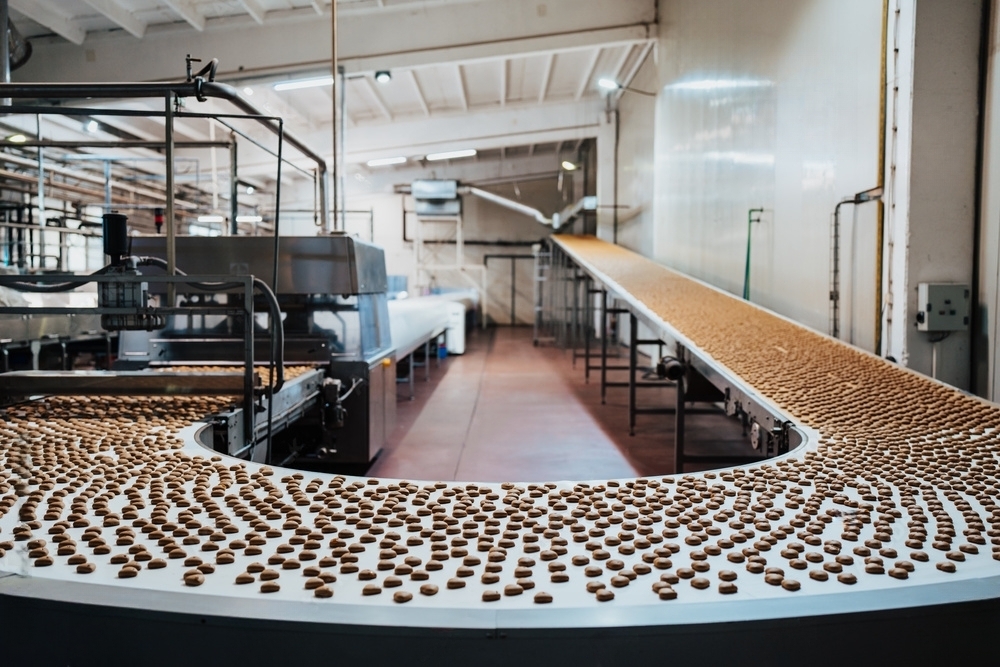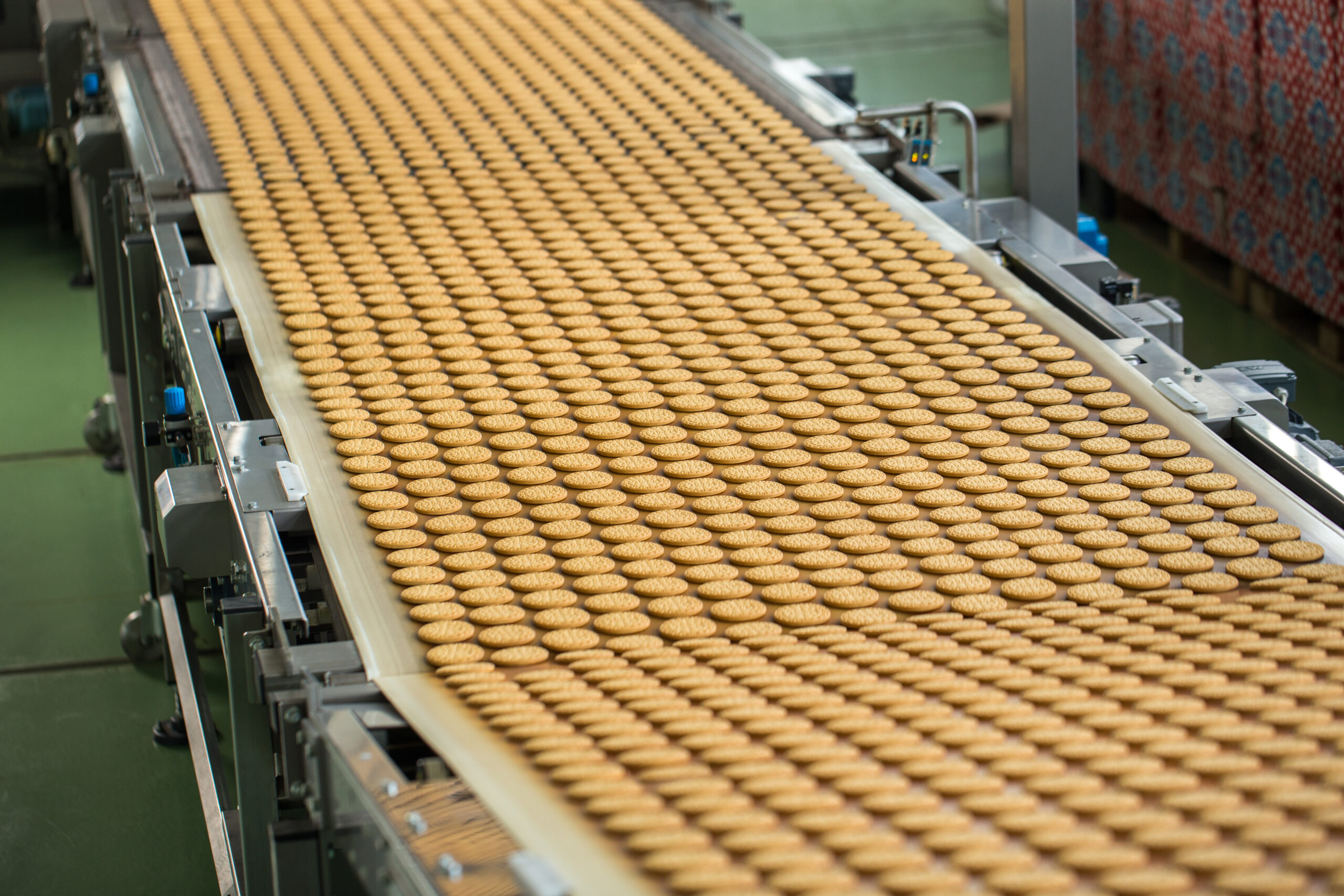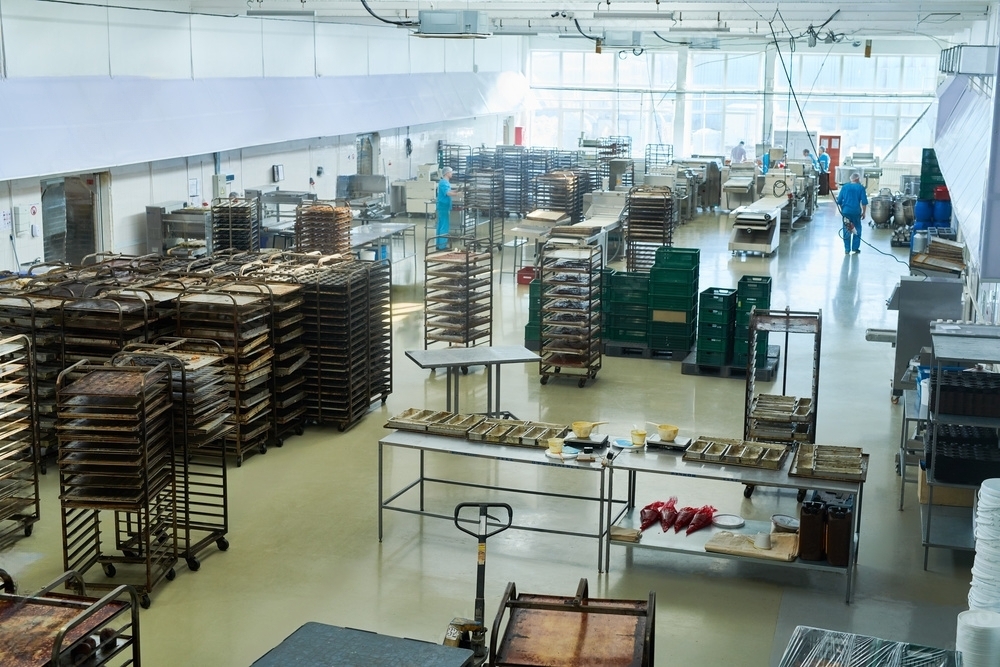
Le problematiche da superare per il ripristino della pavimentazione
È noto che in tutti gli ambienti di produzione dolciaria e di panificazione, oli, liquidi, farine (come nell’industria molitoria) e zucchero possono finire sul pavimento e renderlo scivoloso. Le particelle fini possono rimanere intrappolate tra massetto e sottofondo se presenti crepe o nelle fughe delle piastrelle, quindi per la pavimentazione è sicuramente preferibile una superficie continua e priva di fughe.
Abbiamo collaborato insieme alla Direzione Lavori per superare tutte le criticità e realizzare pavimentazioni altamente performanti e durature nel tempo.
Le materie prime utilizzate negli stabilimenti coinvolti in processi di panificazione possono essere causa di contaminazione delle superfici orizzontali e verticali. Le pavimentazioni devono quindi essere resistenti agli acidi forti, attici, citrici e acetici, alcalini, ma anche a solventi, oli e grassi e alla maggior parte delle sostanze chimiche usate nei processi industriali, inclusi i detergenti specifici utilizzati per i frequenti lavaggi.
La corrosione, se la superficie non è idonea all’attività svolta, può raggiungere gli strati inferiori, ovvero la pavimentazione industriale in calcestruzzo, o peggio il massetto e il sottofondo. Questo tipo di infiltrazioni e contaminazioni comporta un’instabilità della superficie, oltre a favorire la crescita batterica, venendo a meno tutte le caratteristiche HACCP a cui è soggetta. Il pavimento in resina deve quindi garantire una resistenza chimica molto alta e agli shock termici (dalle alte temperature dei forni senza alterarsi, ai lavaggi intensivi e continui, anche con acqua ad alta pressione).
Il rivestimento in resina deve anche garantire un’alta resistenza meccanica, visto l’alto traffico di muletti tra le zone produttive dello stabilimento al magazzino.
L’ultimo punto fermo è stata la richiesta di brevissimi tempi di fermo impianto, problematica comune a tutti gli interventi in stabilimenti produttivi. I rivestimenti in resina sono ottimali anche sotto questo aspetto per gli interventi che sono più contenuti nelle tempistiche, rispetto ad altre soluzioni.
Case history: pavimento in resina per biscottificio
Per noto produttore italiano, con stabilimenti nel Novese, territorio del Basso Piemonte che produce biscotti presenti sulle tavole di tutti gli italiani, ci siamo occupati del ripristino delle pavimentazioni in varie aree, dalle varie aree produttive e nei corridoi dove si trovano i nastri di scorrimento dei prodotti, alle aree di magazzino, includendo anche le pareti.

SOLUZIONI PRIMA: RIVESTIMENTO A MASSETTO ad alto spessore
è un sistema epossidico a malta che aderisce in modo monolitico al supporto, con il quale è possibile realizzare rivestimenti di pavimentazioni industriali con elevate resistenze chimiche e meccaniche, impermeabili agli oli e agli agenti aggressivi, resistenti a frequenti lavaggi, all’usura causata da carrelli e da mezzi in movimento e con un effetto antisdrucciolo o liscio. Permette inoltre di recuperare lievi pendenze e avvallamenti della pavimentazione in calcestruzzo. Continua a leggere >>

 HAI UNA RICHIESTA?
HAI UNA RICHIESTA? 


